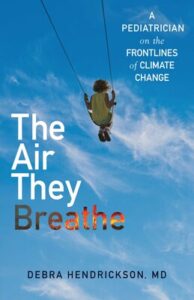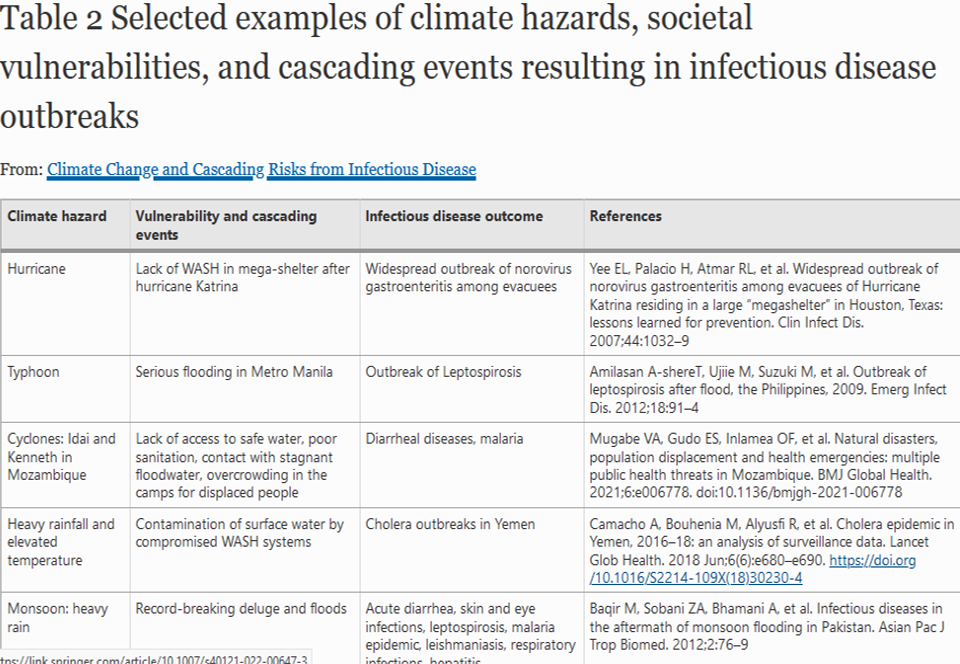This post covers some of the health impacts of climate change. I will do a Part 3 on financial impacts next.
There’s a large literature on the many health impacts of climate change. They include: flooding with its water contamination and disease; an increase in vector-borne diseases like malaria, dengue fever, and Lyme disease; heat waves; increased air pollution causing respiratory and cardiovascular disease; and, of special interest to clinical behavior analysts, psychological health impacts. These include anxiety, PTSD, depression, stress-related disorders, substance use, and suicide. Effects on the millions of climate migrants and refugees worldwide are frequently exacerbated, and their access to health care in developing nations is sometimes limited.
Here’s a recent health impacts book that’s a standout, if you want an introduction.

As a sample of those impacts, here’s part of a table from a recent publication about climate effects in the journal Infectious Diseases and Therapy. You can see that the effects span the globe, from North America to Asia to Africa.

Semenza, J.C., Rocklöv, J. & Ebi, K.L. (2022). Climate Change and Cascading Risks from Infectious Disease. Infectious Disease and Therapy, 11, 1371–1390. https://doi.org/10.1007/s40121-022-00647-3
In 2021, temperatures hit 121 degrees F in *Canada*. Every year now, heat waves driven in part by climate change are major killers worldwide. In 2022, 60,000 people died prematurely in Europe because of them, despite far better resources than in developing nations. In 2023, extreme heat killed 645 people in metro Phoenix. “Extreme heat kills an average of 489,000 people around the world annually, making it the single deadliest natural disaster most years,” according to the World Resources Institute. A good introduction is this book:

Ballester et al. (2023). Heat-related mortality in Europe during the summer of 2022. Nature Medicine 29: 1857-66.
https://www.wri.org/initiatives/urban-heat-passive-cooling
Among the documented psychological effects: 82% of US 10-12 year olds were recently found to be feeling fear, sadness, and/or anger about climate change. Indian farmers have been committing suicide in record numbers due to the effects of heat and drought. I could share lots of other examples, but this is depressing enough.
Berry et al. (2018). The case for systems thinking about climate change and mental health. Nature Climate Change, 8, 282-290.
Sandon & Bellino (2021). Children and youth in the climate crisis. BJPsych Bulletin, 45, 205-209.
So I’m going to end on a more positive note. The World Health Organization found several years ago that over 4 million people globally die prematurely each year from outdoor air pollution. That pollution is mostly due to burning fossil fuels. When we get further along with the Great Transition to sustainability, better health will be one of the many side benefits. Something to look forward to!
Max Roser (2021) – “Data review: how many people die from air pollution?” Published online at OurWorldinData.org. Retrieved from: ‘https://ourworldindata.org/data-review-air-pollution-deaths’ [Online Resource]
